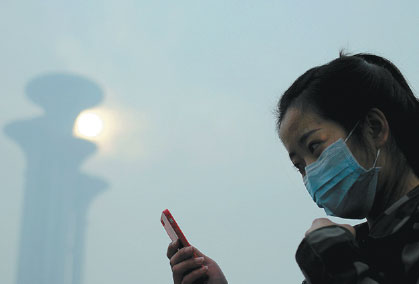Consumers seeking protection from pollution
Updated: 2014-11-21 07:36
By Wang Hongyi in Shanghai(China Daily)
|
||||||||
Constantly frustrated with hazardous air quality, more Chinese consumers are turning to products aimed at protecting their health.
Beijing issued an alert for hazardous air, and it urged residents to try to stay indoors as the city was choked by smog on Thursday after experiencing unusual blue skies during the Asia Pacific Economic Cooperation Meetings from Nov 5 to 11.
Meanwhile, many cities in neighboring regions, including the provinces of Hebei, Shanxi, Shandong and Liaoning, are also under heavy smog.
"As consumers become more sophisticated in the area of health and well-being, their ultimate goal for adopting healthy lifestyles has moved beyond simply functional benefits varying by life stages and different demographic groups," said Laurel Gu, a senior research analyst with the UK's Mintel Group.
According to new research by Mintel, 40 percent of the population bought items designed to protect themselves from the effects of environmental pollution in the past year.
The company's latest annual China Consumer Trends report also revealed that 47 percent of Chinese consumers are concerned about catching incurable diseases due to environmental pollution, and 38 percent are worried about developing respiratory diseases.
The Mintel report, carried out online, surveyed about 3,000 people between ages 20 and 49 from 10 cities across the country.
"Air pollution will continue to be a hot topic among the public," said Ailsa Gu, Mintel's insights manager for North Asia. "Health and skin care are major concerns for Chinese consumers, who worry about the effects of pollution."
At least a quarter of Chinese women who use body care or hand care products said they buy products that specifically claim to have anti-irritation, healing or antibacterial ingredients.
Cosmetics companies are now using PM2.5 terminology to promote their anti-pollution products and are trying to make consumers more aware of the personal effects of pollution, the company said.
The PM2.5 scale measures the amount of particulate matter - particles smaller than 2.5 microns in diameter that can harm health - per cubic meter of air.
Companies have an opportunity to offer effective solutions and establish their brand in the antipollution market, which has the potential to grow further in the future, industry analysts said.
Cindy Li, 33, said that given the levels of pollution in some areas of China, she now chooses cosmetics more carefully than ever before.
"The poor air quality has had a negative effect on my skin," she said.
"Whether a product can protect my skin from airborne dust or other environmental conditions is one of the key factors that I consider."
In addition to an increasing number of air purification products being bought for homes, offices and cars, the Mintel report said the market is also likely to see people buying more wearable devices and clothes that measure and guard against dangerous levels of pollution, such as apps that monitor sleeping quality and heart rate, and devices that detect indoor air quality, temperature and humidity.
wanghongyi@chinadaily.com.cn
|
The thick smog that shrouded Beijing on Thursday is expected to last for a few more days. Wang Jing / China Daily |
(China Daily 11/21/2014 page1)
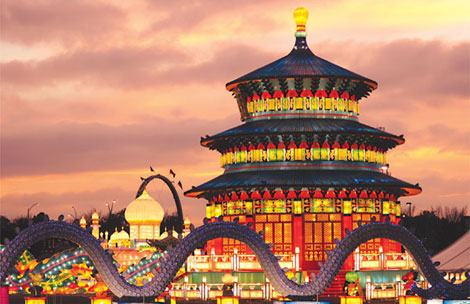
 Chinese lantern festival is coming to California
Chinese lantern festival is coming to California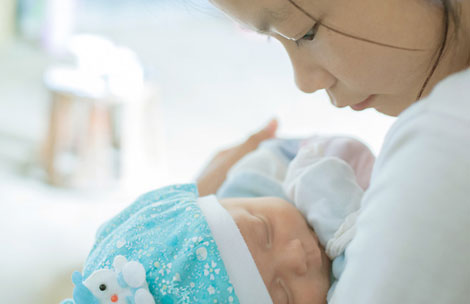
 Early start to family life
Early start to family life
 IT titans at WIC excited about future
IT titans at WIC excited about future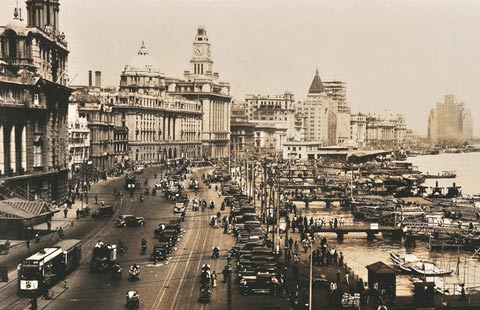
 Photos reveal China scenes in the 1930s
Photos reveal China scenes in the 1930s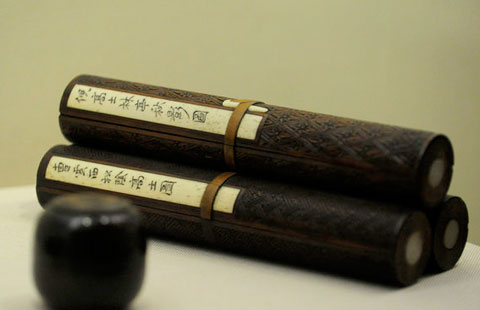
 Culture Insider: Popular gifts in past decades
Culture Insider: Popular gifts in past decades
 Jack Ma shares tips at Internet summit
Jack Ma shares tips at Internet summit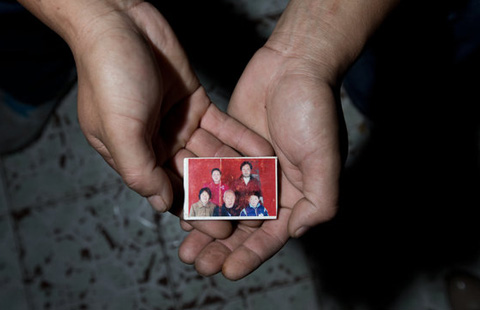
 Painful search for reunion
Painful search for reunion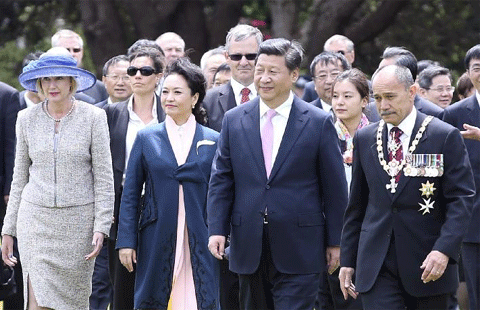
 President Xi attends welcoming ceremony in Wellington, New Zealand
President Xi attends welcoming ceremony in Wellington, New Zealand
Most Viewed
Editor's Picks

|
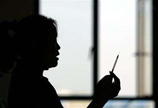
|

|
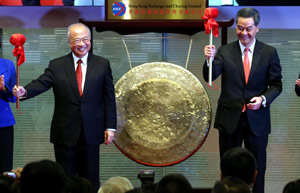
|

|

|
Today's Top News
Chinese lantern festival is coming to California
Cookstove technology key in fighting pollution
Chinese supercomputer still top-ranked
Lesson in Chinese history
Obama takes executive action on immigration
Deng Long: New York supermarket king
China wants its voice
heard in cyberspace
New Zealand welcomes Xi
US Weekly

|

|
